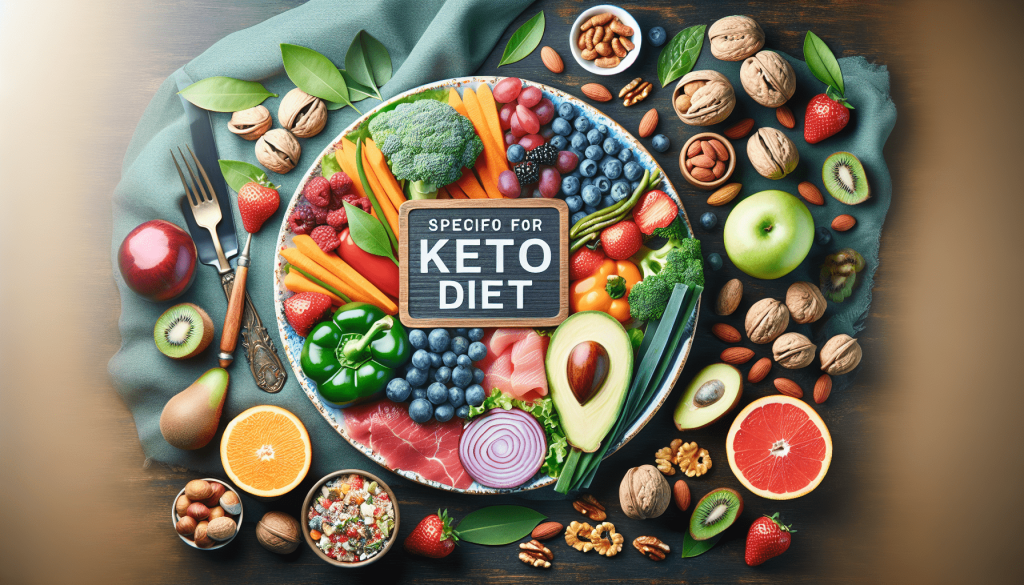Welcome to an article focusing on the importance of adapting the Keto diet for senior health. As you age, your nutritional needs may change, and it is crucial to ensure you are still getting the right balance of nutrients when following a Keto diet. In this article, we will explore some key considerations for seniors looking to maintain their health and well-being through the Keto diet, including tips on adjusting macros, staying hydrated, and incorporating micronutrients for optimal health. Read on to discover how you can tailor the Keto diet to suit your senior years and enjoy the benefits of a healthy lifestyle.
Adapting the Keto Diet for Senior Health
Are you a senior looking to improve your health and wellness with the keto diet? With some modifications and adjustments, you can make the keto diet work for you as you age. Let’s explore how you can adapt the keto diet for optimal senior health.
The Importance of Nutrition for Seniors
Nutrition plays a crucial role in maintaining good health as we age. As a senior, it’s essential to pay attention to what you eat to ensure you’re getting the necessary nutrients to support your overall well-being.
Understanding the Keto Diet
The keto diet is a high-fat, low-carb eating plan that has gained popularity for its potential health benefits, including weight loss, improved blood sugar control, and increased energy levels. By drastically reducing carbohydrate intake and replacing it with healthy fats, your body enters a state of ketosis, where it burns fat for fuel instead of glucose.

Benefits of the Keto Diet for Seniors
The keto diet offers several potential benefits for seniors, including:
- Weight Management: The keto diet can help seniors manage their weight by promoting fat loss while preserving lean muscle mass.
- Blood Sugar Control: By reducing carbohydrate intake, the keto diet may help improve blood sugar levels and insulin sensitivity in seniors with diabetes or prediabetes.
- Mental Clarity: Some seniors report improved cognitive function and mental clarity when following the keto diet.
- Increased Energy Levels: By using fat for fuel instead of glucose, seniors may experience more stable and sustained energy levels throughout the day.
Adapting the Keto Diet for Senior Nutritional Needs
As a senior, your nutritional needs may differ from those of younger individuals. Here are some tips for adapting the keto diet to meet the unique needs of seniors:
Focus on Whole Foods
When following the keto diet, focus on whole, nutrient-dense foods such as:
| Protein | Healthy Fats | Non-Starchy Vegetables |
|---|---|---|
| – Salmon | – Avocado | – Spinach |
| – Chicken | – Olive Oil | – Broccoli |
| – Eggs | – Nuts and Seeds | – Cauliflower |
Stay Hydrated
Seniors are more prone to dehydration, so it’s essential to stay hydrated when following the keto diet. Aim to drink plenty of water throughout the day and consider incorporating electrolyte-rich beverages or foods to maintain electrolyte balance.
Monitor Micronutrient Intake
As we age, our bodies may have difficulty absorbing certain nutrients, such as vitamin B12 and magnesium. Consider taking supplements or eating foods rich in these nutrients to prevent deficiencies.
Adjust Protein Intake
Seniors may require more protein to support muscle maintenance and repair. Be sure to include an adequate amount of protein in your keto diet to meet your individual needs.

Potential Risks and Considerations
While the keto diet can offer several benefits for seniors, it’s essential to be aware of potential risks and considerations, including:
Increased Risk of Nutrient Deficiencies
Following a restrictive eating plan like the keto diet may increase the risk of certain nutrient deficiencies, such as vitamins C, K, and folate. Be mindful of your nutrient intake and consider consulting with a healthcare provider or nutritionist to address any deficiencies.
Potential Digestive Issues
Some seniors may experience digestive issues, such as constipation or gastrointestinal discomfort, when transitioning to the keto diet. Be sure to include plenty of fibre-rich foods and stay hydrated to support digestive health.
Medication Adjustments
If you’re taking medication for a chronic condition, consult with your healthcare provider before making significant changes to your diet, including starting the keto diet. Some medications may need to be adjusted to account for changes in nutrient intake.
Tips for Success on the Keto Diet
To make the most of your keto diet journey as a senior, consider the following tips for success:
- Listen to your body: Pay attention to how your body responds to the keto diet and adjust your eating plan as needed.
- Stay active: Incorporate regular physical activity into your routine to support overall health and well-being.
- Seek support: Consider joining a senior-focused keto community or working with a nutritionist to get guidance and support on your journey.
Final Thoughts
The keto diet can be a valuable tool for seniors looking to improve their health and well-being. By making some adjustments and focusing on nutrient-dense foods, hydration, and overall health, you can adapt the keto diet to meet your unique needs as you age. Remember to consult with a healthcare provider or nutritionist before making significant changes to your diet to ensure it aligns with your individual health goals and requirements.
